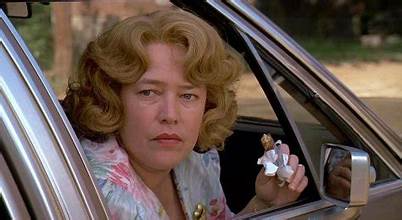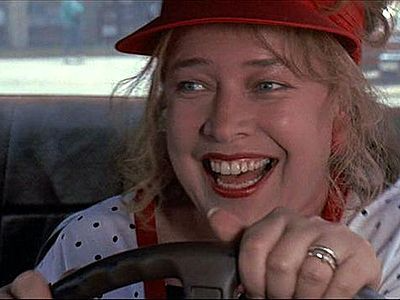
When audiences first saw Kathy Bates’s character Evelyn Couch take revenge in the parking lot scene of Fried Green Tomatoes (1991), they cheered. Here was a quiet, polite, middle-aged woman who had spent most of her life apologizing — finally exploding, both literally and emotionally.
The scene has become one of cinema’s most cathartic and empowering moments. But few people know the wild truth behind it: Kathy Bates actually trained to drive a tank while preparing for that scene.
The Spark Behind the Fury
The parking lot revenge scene wasn’t just a throwaway comic moment. It was a deeply human outburst — the kind of rage that comes from decades of being dismissed and ignored. Director Jon Avnet and screenwriter Fannie Flagg wanted it to be both hilarious and liberating.
Bates, known for her intensity and preparation, didn’t want to play the scene like a sitcom gag. “I didn’t want it to look like a tantrum,” she said in a 1992 interview. “It had to come from a real emotional place — that moment when you finally say, ‘Enough.’”
To help her connect with that raw feeling of power, the film’s stunt team suggested something unusual — a day at a military driving course outside Atlanta. Bates agreed immediately. “I thought they were joking,” she laughed years later. “But then I found myself behind the wheel of an actual tank.”
Learning to Control Power
The training wasn’t about stunts — it was psychological. Bates said driving the massive machine gave her a sense of unstoppable energy, something she later channeled into Evelyn’s transformation.
“It’s impossible to feel small when you’re driving a tank,” she recalled. “It changes the way you see yourself — suddenly you realize you can take up space.”
That confidence became the emotional foundation for Evelyn’s car crash scene. Back on set, Bates applied what she had learned: focus, precision, and the joy of not holding back.
“She wanted to understand what it felt like to have that kind of control,” Avnet explained. “When you watch her in that scene, you’re not seeing an actress pretending — you’re watching someone reclaim her power.”

Filming the Legendary Scene
The parking lot sequence was filmed over two days in a real shopping center in Georgia. Two identical cars were used for safety, and Bates insisted on doing most of the driving herself.
“There was a moment right before we rolled cameras,” recalled cinematographer Geoffrey Simpson, “when she just sat there, gripping the steering wheel, and then you could see it — Evelyn wasn’t scared anymore. She was ready.”
Bates accelerated, slammed into the car, reversed, and hit it again — just as written. The laughter and satisfaction on her face were completely real. The crew erupted in applause after the first take.
“It wasn’t about destruction,” Bates said. “It was about release. For Evelyn — and maybe for every woman watching.”
A Scene That Spoke to Millions
That single moment — capped by the line, “Face it, girls, I’m older and I have more insurance” — became an instant classic. Audiences cheered in theaters, and critics called it one of the most emotionally satisfying moments in modern film.
Over time, the scene took on a deeper cultural meaning. It became a feminist anthem, a metaphor for reclaiming strength after years of repression. Even today, fans still quote the line or mention how that scene made them feel “seen.”
Kathy Bates later said it remains one of her proudest moments on screen. “It’s funny,” she said, “but that scene taught me a lot about myself. You don’t always need to be polite. Sometimes you have to drive straight through what’s holding you back.”
Legacy of a Quiet Revolution
More than three decades later, Fried Green Tomatoes endures not just as a film about friendship, but as a story of transformation. Evelyn Couch’s journey — from shy housewife to confident woman — mirrors the change many viewers have felt in their own lives.
And at the heart of it all is Kathy Bates, who dared to go beyond the script, learn to drive a tank, and turn a single parking lot meltdown into one of the most iconic acts of rebellion in movie history.
As director Jon Avnet put it best:
“That scene wasn’t about revenge. It was about liberation. Kathy made every woman in that theater feel like they could take the wheel.”
